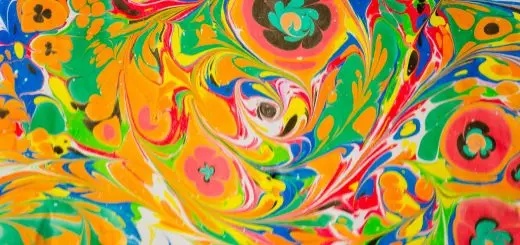The Global Trade Network of the Portuguese Empire

Looking for more amazing products? Check out our online store and explore our collection here! Happy shopping!
Before diving in, please note: This post is for informational purposes only. If you’d like to know more about how we approach topics, feel free to check out our friendly Disclaimer Page.
Hey there, amazing readers! 
We’re committed to delivering quality posts, and your support (even just sticking around despite the ads) means everything to us. So, bear with us, and thanks for helping us keep the good vibes rolling. Now, on to the fun stuff!
TRANSLATE BUTTON AT THE END OF THE ARTICLE
A Quick Overview
The Portuguese Empire, stretching from the late 15th century into the 17th century, was one of the first global maritime empires.
This vast network of territories and trade routes established by Portugal changed how the world engaged in commerce.
It was a time when spices, precious metals, and exotic goods flowed between continents, creating a web of trade that not only enriched the empire but also influenced cultures and economies around the globe.
This article delves into the intricacies of the Portuguese trade network, exploring how it was built, the commodities that fueled its growth, and the lasting legacies of its trade practices.
The Portuguese Empire: A Gateway to Global Trade
The Portuguese Empire was pivotal in the development of a global trade system.
In the late 15th century, explorers like Vasco da Gama set out on voyages that connected Europe to Asia, laying the groundwork for maritime trade routes.
Portugal’s strategic position along the Atlantic coast of Europe allowed it to flourish as a trading hub.
Maritime Expertise: The Portuguese were skilled navigators, which gave them an edge in exploration and trade.
Colonial Settlements: From Brazil to Mozambique, the Portuguese established settlements that served as bases for trade.
Cultural Exchange: The empire facilitated not just the exchange of goods, but also ideas, languages, and cultures.
The Portuguese were not just traders; they were also pioneers.
Their empire showcased the possibilities of trade as a means of influence and power.
It was a time when empires were built on the backs of merchant ships, and Portugal led the fleet.
Exploring the Historical Roots of Portuguese Trade
The roots of Portuguese trade can be traced back to the Age of Discovery.
This period was marked by a zeal for exploration and expansion.
Prince Henry the Navigator: He was instrumental in encouraging exploration along the African coast and establishing trade routes.
Treaty of Tordesillas (1494): This agreement divided the New World between Spain and Portugal, giving Portugal a significant stake in global trade.
Early Navigation Schools: Portugal established schools for navigation, helping to train a new generation of sailors and explorers.
These historical milestones were crucial.
They set the stage for Portuguese dominance in global trade, leading to a heightened interest in spices and luxury goods.
Key Commodities That Shaped the Empire’s Wealth
The Portuguese Empire thrived on a variety of key commodities.
These goods were not just valuable; they shaped the very fabric of trade.
Spices: Cinnamon, pepper, and cloves were in high demand.
Portugal controlled the spice trade from the East Indies.
Sugar: The cultivation of sugarcane in Brazil became a massive economic driver, with sugar mills popping up across the region.
Gold and Silver: Precious metals from Africa and South America flowed into Portugal, enriching the empire and funding further explorations.
These commodities made Portugal a powerhouse in the global trading arena.
Each commodity had a story, often involving adventurous voyages and daring trades.
The Strategic Ports: Connecting Continents and Cultures
Ports played a pivotal role in the Portuguese trade network.
They served as vital links in the supply chain, ensuring the smooth flow of goods.
Lisbon: The capital was the empire’s main port and a melting pot of cultures and ideas.
Goa: Known as the ‘Pearl of the East,’ it was a crucial base for trade in the Indian Ocean.
Angola: Served as a stopping point for ships heading to Brazil and the Americas.
These ports became bustling centers of commerce, where merchants, sailors, and local populations interacted.
They not only connected continents but also cultures and traditions.
Navigating the Waves: Portuguese Innovations in Sailing
Portugal was at the forefront of maritime innovation during the Age of Exploration.
Their advancements made it possible to traverse vast oceans.
Caravel: This small, highly maneuverable ship was ideal for long voyages and could sail into the wind.
Astrolabe: An instrument that helped sailors determine their latitude by measuring the position of the stars.
Updated Maps: Portuguese cartographers created detailed maps, which improved navigation and made voyages safer.
These innovations were game-changers.
They allowed Portuguese sailors to explore unknown waters and set the stage for global trade.
Trade Routes: The Spice and Silk Roads of the Empire
The Portuguese Empire established crucial trade routes that connected different parts of the world.
The Spice Route: This route extended from the Indian subcontinent to Europe, primarily driven by the demand for spices.
The Silk Road: Though mainly controlled by other empires, the Portuguese attempted to access this route for silk and other luxury goods.
Transatlantic Routes: These routes linked Europe to the Americas, facilitating the exchange of goods like sugar and tobacco.
These trade routes were arteries of commerce.
They enabled the flow of goods, people, and ideas, transforming the economic landscape of the time.
The Role of Explorers in Expanding Trade Networks
Explorers were the unsung heroes of the Portuguese Empire.
Their quests for new territories brought about the empire’s expansion.
Vasco da Gama: His voyage to India opened up direct trade routes with Asia.
Afonso de Albuquerque: He established a Portuguese presence in the Indian Ocean, securing key trade routes.
Bartolomeu Dias: He was the first to sail around the southern tip of Africa, paving the way for easier access to the East.
These explorers were driven by curiosity and ambition.
They were the adventurers of their time, facing countless challenges to expand the empire’s reach.
Cultural Exchange: The Impact of Global Trade
Global trade under the Portuguese Empire did more than just enrich the coffers.
It fostered cultural exchanges.
Language: Portuguese became a lingua franca in many parts of Africa and Asia due to trade.
Religion: The spread of Christianity accompanied trade, leading to the establishment of missions in various regions.
Culinary Influences: The introduction of new foods and spices changed local cuisines forever.
These exchanges enriched both the Portuguese and the local populations.
They created a tapestry of shared experiences that transcended borders.
The Influence of Portuguese Trade on Local Economies
The impact of Portuguese trade was far-reaching, affecting local economies significantly.
Economic Growth: Areas involved in the spice trade experienced considerable economic growth, often leading to local prosperity.
Labor Systems: The demand for labor in sugar plantations led to the establishment of systems that exploited local populations and imported slaves.
Market Changes: Local markets were transformed by the influx of European goods, leading to shifts in traditional practices.
This influence was a double-edged sword.
While it brought wealth, it also brought challenges and disruptions to local societies.
The Decline of the Empire and Its Trade Legacy
By the late 17th century, the Portuguese Empire began to decline.
Competition: Rival European powers like the Dutch and the British started to challenge Portuguese dominance.
Financial Strain: The costs of maintaining a vast empire became unsustainable.
Political Instability: Internal issues weakened Portugal’s control over its territories.
Despite this decline, the legacy of the Portuguese trade network remains.
It set the foundation for modern global trade systems and influenced the development of international commerce.
Modern Reflections: How History Shapes Today’s Trade
Today, we see echoes of the Portuguese trade network in modern commerce.
Globalization: The interconnectedness of markets can be traced back to the early trade routes established by empires like Portugal.
Cultural Blending: The fusion of cultures due to trade influences contemporary society.
Trade Practices: The principles of trade negotiation and exchange have their roots in the practices established during the empire.
Recognizing this historical context helps us understand our current trade environment.
It’s a reminder that the economy is a continuously evolving tapestry, woven from countless threads of history.
Celebrating the Portuguese Empire’s Trade Achievements
The achievements of the Portuguese Empire in trade are remarkable.
Innovative Spirit: The drive for exploration led to extraordinary advancements in navigation and shipbuilding.
Cultural Legacy: The empire contributed to a rich exchange of cultures, languages, and cuisines.
Economic Foundations: The trade systems developed during this time laid the groundwork for contemporary commerce.
As we reflect on the Portuguese Empire, it’s clear that its trade network was more than just commerce; it was a significant chapter in human history that shaped our world today.
Conclusion
The global trade network of the Portuguese Empire was a fascinating tapestry of exploration, commerce, and cultural exchange.
It was a time when the world was much smaller, and the thirst for discovery drove people to the seas.
Today, as we navigate our interconnected world, we can look back at the legacy of the Portuguese Empire with admiration.
Their spirit of adventure and innovation resonates through time, reminding us of the power of trade and the shared human experience.

The Enlightenment Journey is a remarkable collection of writings authored by a distinguished group of experts in the fields of spirituality, new age, and esoteric knowledge.
This anthology features a diverse assembly of well-experienced authors who bring their profound insights and credible perspectives to the forefront.
Each contributor possesses a wealth of knowledge and wisdom, making them authorities in their respective domains.
Together, they offer readers a transformative journey into the realms of spiritual growth, self-discovery, and esoteric enlightenment.
The Enlightenment Journey is a testament to the collective expertise of these luminaries, providing readers with a rich tapestry of ideas and information to illuminate their spiritual path.
Our Diverse Expertise
While our primary focus is on spirituality and esotericism, we are equally passionate about exploring a wide range of other topics and niches 

To ensure we provide the most accurate and valuable insights, we collaborate with trusted experts in their respective domains 
Our blog originally focused on spirituality and metaphysics, but we’ve since expanded to cover a wide range of niches. Don’t worry—we continue to publish a lot of articles on spirituality! Frequently visit our blog to explore our diverse content and stay tuned for more insightful reads.
Hey there, amazing reader! 
Check out our store here and take a peek at some of our featured products below! Thanks for being awesome!










